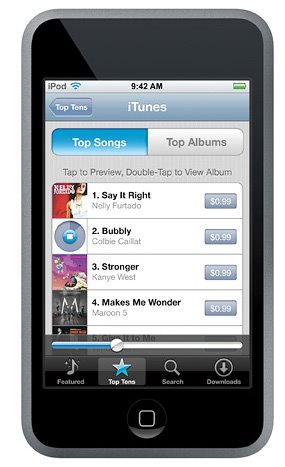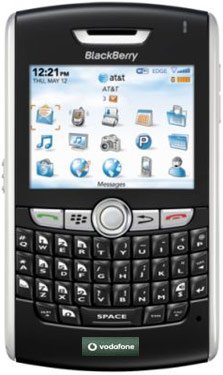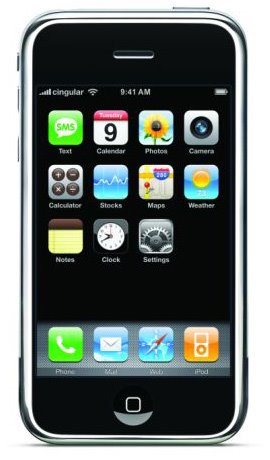
Microsoft's practice of including a Web browser with its operating system has faced renewed scrutiny this year. Following complaints from Opera and Mozilla, the European Union has applied pressure to Microsoft and has compelled the company to present users with alternative browser options. Microsoft has proposed a browser ballot system that will give users the ability to choose which Web browser they use with Windows. Mozilla vice president and general counsel Harvey Anderson has responded to Microsoft's proposal and has expressed concern about several aspects.
Anderson's primary concern is that various mechanisms in the operating system that are controlled by Microsoft could create conditions that encourage users to unintentionally reset their default browser to Internet Explorer.
Microsoft's proposal specifically addresses some of these issues, but the language is somewhat vague and there is a lot of room for different interpretations. Anderson wants there to be no ambiguity or room for Microsoft to circumvent the intent behind the proposal. Despite these concerns, he thinks that the browser ballot proposal has the potential to be a reasonable and effective remedy if Microsoft conforms with it in good faith.
When Internet Explorer is launched, it will display a message asking users if they would like to make it the default. Anderson wants to make sure that this prompt is only displayed when the user intentionally launches Internet Explorer, not when Internet Explorer is launched automatically by platform-related behaviors.
"Not offering updates through Windows Update to an off-switched IE is a good start. But most users won't have IE turned off, even if they have other browsers as their default. When IE is not the default, any launch of IE, user intended/initiated or not, may prompt the user to restore IE as his default browser," he wrote. "This may be a reasonable action for an intentional user-initiated launch of IE, but it's an abuse when it's not user-initiated and has the impact of undoing user choice."
Although his concern on this matter is understandable, it's worth noting that Microsoft already conforms with some of his expectations. In Windows XP, the message prompting users to make Internet Explorer the default browser is not displayed when the browser is launched by selecting the Windows Update item from the start menu. In Windows Vista, the update system doesn't use the Web browser at all. Other Web related features, such as the "Windows Catalog" in the start menu, launch in the user's default browser.
Anderson is also concerned about the behavior of other Microsoft applications, particularly Microsoft's dominant Office suite.
"Microsoft Office 2007 and other Microsoft programs should not 'hard code' links, shortcuts, or icons to launch an already installed IE when IE is not the default browser. If Microsoft applications need to launch a browser, they should only launch the user's default browser."
In my extensive tests with Microsoft Office 2007 and other Microsoft software, I was unable to find any instance where the user's default browser setting is ignored. During my tests, links in Office 2007 were all properly opened in Google Chrome, my default Windows browser. It's unclear exactly what Anderson is referring to, but it would sure help illustrate his point if he could provide even one example of a Microsoft program launching Internet Explorer when another browser is set as the default.
Anderson says that there are some unanswered questions about how the browser ballot provisions will be applied to OEMs and hardware vendors that ship computers with Windows preinstalled. In particular, he says that Microsoft's proposal doesn't stipulate whether OEMs are required to display the browser ballot screen in their default Windows installations. He believes that the proposal should be clarified to specifically address this issue. It's worth noting, however, that the proposal does include detailed provisions stating that OEMs will be able to preinstall any browser of their choosing and that Microsoft will not use threats or partnership incentives to compel OEMs to choose its Web browser.
It's not entirely clear what the basis is for some of the issues that Anderson raises. Some of his complaints are reasonable, but many lack substance—much like the EU's entire case against Microsoft shipping its own browser by default. Market share statistics continue to show that Firefox is experiencing significant growth and that it has an especially strong presence in Europe.
As Mozilla celebrates its billionth download milestone and enjoys a 22 percent global marketshare amidst an increasingly competitive browser market, it seems difficult to justify invasive government intervention aimed at boosting competition. If the EU thinks that the current browser ecosystem represents an example of market failure, then maybe they need to reevaluate how they define competition.
Update: Mozilla's Asa Dotzler has provided some additional clarification on the Windows Update issue via e-mail. He explains that Anderson's complaint with Windows Update is that major updates of the IE browser, such as the update from version 7 to version 8, will cause the browser to launch and prompt the user to make it the default. There is certainly some strong anecdotal evidence indicating that this behavior can lead to unanticipated changes in the default browser settings, so the issue may warrant further consideration as Anderson suggests.





 authority
authority







0 comments:
Post a Comment